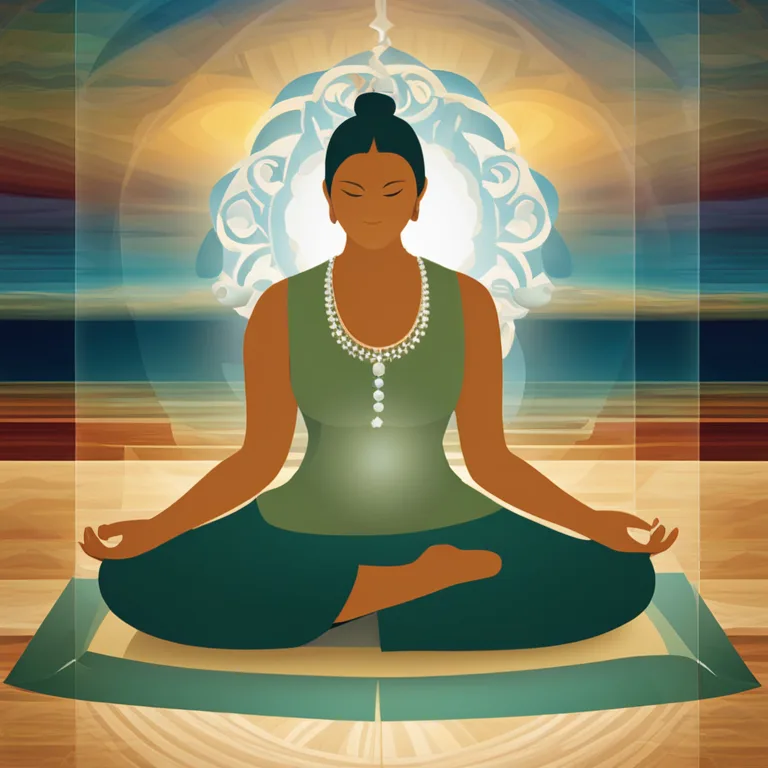
Meditation Techniques for Bipolar Wellness
Discover meditation practices tailored for managing bipolar disorder, helping to promote mental balance and emotional well-being.
article by Hina Kurosawa
Introduction to Bipolar Meditation
Meditation has long been recognized for its calming and restorative effects on the mind. For individuals with bipolar disorder, a condition characterized by mood swings ranging from manic highs to depressive lows, meditation can serve as a complementary therapy. In this article, we will explore various meditation techniques that may help in achieving a more balanced state of mind, reducing stress, and enhancing overall emotional health for those managing bipolar disorder in 2024 and beyond.

Mindfulness Meditation Foundations
Mindfulness meditation is a practice that encourages participants to remain present and fully engaged with whatever is happening in the moment, without judgment or distraction. This approach can be particularly beneficial for bipolar disorder, helping to foster a greater sense of mental equilibrium. By focusing on the breath or a specific mantra, individuals learn to observe thoughts and feelings without being carried away by them, which can be instrumental in managing the intense emotions associated with mood swings.

Guided Meditation for Structure
Guided meditation provides structure through a voiced narrative that leads practitioners through relaxation and visualization exercises. It is especially helpful for those who may find it challenging to meditate independently. Varied in themes and purposes, guided meditations can be tailored to promote relaxation, sleep, or even to cope with specific symptoms of bipolar disorder. As technology advances into 2024, access to high-quality guided sessions has become widely available through meditation apps and online platforms.

Yoga Nidra for Deep Relaxation
Yoga Nidra, or yogic sleep, is a form of meditation that induces a state of deep relaxation while maintaining consciousness. This technique is known for assisting in the reduction of anxiety and stress, which can be triggers for bipolar episodes. Through systematic body scanning and mindful breathing, Yoga Nidra can contribute to a more stable mood pattern by allowing the nervous system to reset and promoting a sense of peace and stillness.

Breathing Techniques to Manage Mood
Breathing techniques, or pranayama in the yoga tradition, involve controlling the breath to influence the flow of energy in the body. Proper breathing can have an immediate effect on the sympathetic and parasympathetic nervous systems, helping to calm or energize the practitioner. Balancing breathing exercises, like alternate nostril breathing, can aid individuals with bipolar disorder in managing acute stress and averting potential mood disturbances.
Body Scan for Awareness and Release
A body scan meditation is another mindfulness practice that can be useful for those with bipolar disorder. This technique involves focusing on different parts of the body to cultivate awareness of physical sensations, often revealing how emotional states can manifest as tension or discomfort. Engaging in regular body scans can encourage the release of stored stress and improve emotional regulation, critical for individuals managing bipolar symptoms.
Zazen for Elevated Consciousness
Zazen is a form of seated meditation originating from Zen Buddhism. It emphasizes letting go of thoughts and allowing the mind to rest in its natural state of calm. People living with bipolar disorder may find Zazen to be a powerful tool for centering the mind and diminishing the impact of racing thoughts, a common experience during manic phases. This practice can aid in bringing attention back to the present and establishing a connection with one's deeper self.
Consistency and Support in Practice
It is important to note that while meditation can be supportive, it is not a substitute for professional medical care. Consistent practice under the guidance of a therapist or a qualified instructor is advised, ensuring that meditation is effectively integrated into the overall treatment strategy for bipolar disorder. As our understanding of mental health continues to evolve, the integration of meditation and traditional therapies is poised to become a holistic way forward.
Published: 12/20/2023
Modified: 12/20/2023
More predictions
Come back here soon to learn more about yourself and your future


Meditation: Unveiling The Optimal Practice Duration
Discover how much time to dedicate to mindfulness meditation for personal growth and well-being.


Building A Daily Meditation Habit
Embrace serenity and enhance well-being with simple, everyday mindfulness meditation exercises.


The Essence Of Mindfulness Meditation
Discover the core principles and benefits of mindfulness meditation for a balanced and harmonious life beyond 2024.